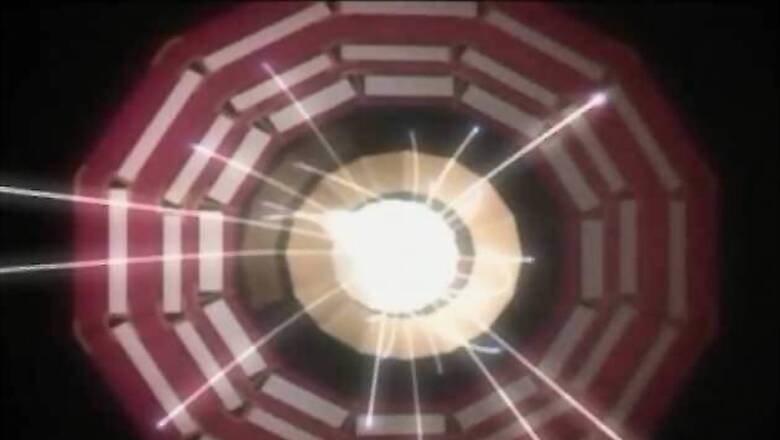
views
New Delhi: There is an intrinsic Indian connection to the entire science show being held at CERN, Switzerland as physicists from all across the world prepare to thrash out the God Particle or Higgs boson in its physical form in a giant collider. The elementary particle of boson is named after Indian physicist Satyendra Nath Bose whose study changed the way Particle Physics has been studied ever since. Bose was a part of the golden troika of Indian physicists (that included CV Raman and Meghnad Saha) whose works have left permanent impressions on the study of fundamental physics.
The relativistic model proposed by three groups of physicists that included Peter Higgs in 1964 held the Higgs boson to have a large mass which is why a huge collider-accelerator has been used at CERN to study it.
The Higgs boson is one of the six elementary bosons, the others being the four gauge bosons and the graviton. Bosons, which can be either elementary or composite (like mesons), are one of the two fundamental subatomic particles, the other being the fermions. But unlike photons, gluons, gauge bosons and graviton, the Higgs Boson is a purely hypothetical standard particle. It is the only elementary particle predicted by the Standard Model which has not been observed in Particle Physics experiments.
Satyendra Nath Bose, as a student at Presidency College, Calcutta, went on to secure the highest marks in every discipline (a few of them remains unbroken even now). Meghnad Saha, his classmate came a close second. Bose would later take up teaching assignments at Calcutta and Dhaka universities.
Bose's biggest contribution to Particle Physics came in the form of a study that he sought to present before his students at Dhaka to show them that contemporary theory was not in accordance with results gathered from experiments. During this lecture, Bose committed a 'mistake' in applying the theory, which unexpectedly gave a prediction that agreed with the experiment. But the 'error' was a statistical one and not an experimental one.
That would evolve into Bose writing a paper deriving Planck's quantum radiation law without any reference to classical physics. He used a new way of counting states with identical particles. He sent the paper directly to Albert Einstein in Germany who, recognizing the importance of the paper, translated it into German himself and submitted it on Bose's behalf to the prestigious Zeitschrift für Physik journal. As a result of this recognition, Bose was able to work for two years in European X-ray and crystallography laboratories, during which he worked with Louis de Broglie, Marie Curie and Einstein himself.
Bose's 'mistake' is today what the world calls Bose–Einstein statistics. This result derived by Bose laid the foundation of quantum statistics, as acknowledged by Einstein and Paul Dirac.
Though Nobel Prize in Physics awards have been awarded in connection with research in this domain, many find it strange that Satyendra Nath Bose himself was not awarded one. But having an elementary particle named after oneself is an honour that far outstrips any award. A Nobel Prize in Physics is awarded every year. But nomenclature of an elementary particle lasts till the end of time.


















Comments
0 comment